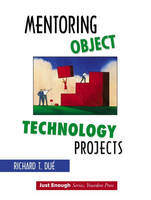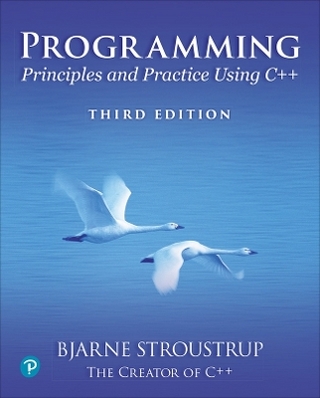
Mentoring Object Technology Projects
Prentice Hall (Verlag)
978-0-13-034790-9 (ISBN)
- Titel ist leider vergriffen;
keine Neuauflage - Artikel merken
Object technology is now mainstream, offering at least the promise of a true discipline of software engineering. Nevertheless, many projects still fail, often catastrophically. To manage object technology well requires specific skills and techniques that many project managers and developers do not possess. This book is the solution. Drawing on his extraordinary experience consulting on object technology project management in 28 countries, Richard T. Due has brought together practical project management approaches and proven implementation guidelines that work. Mentoring Object Technology Projects identifies critical success factors in object project management, while introducing tools and techniques that can be applied immediately in real projects. Due demonstrates how to create accurate, realistic project estimates; build credible project schedules; and monitor projects effectively. He also objectively evaluates today's leading methodologies, including the Unified and OPEN approaches. The book includes detailed templates you can use to start managing object-oriented projects more effectively, starting today.
For every project manager, planners, senior business systems analyst, information modeler, and developer seeking more productive ways to manage object-oriented IT projects.
RICHARD T. DUÉ is the President of Thomsen Dué and Associates Limited, a training and consulting firm specializing in object technology. Richard develops and presents courses focused on object technology project management, object-oriented analysis and design, and object-oriented design patterns, and provides mentoring services to organizations migrating to object technology. He has more than 30 years of IT experience as a programmer, analyst, manager, consultant, teacher, and author, and is a frequent, highly rated speaker at conferences such as TOOLS and OOPSLA.
Introduction.
1. Object Engineering: A New Approach to Information Technology.
Needed: A New Approach to Information Technology. Needed: A New Approach to Business Process Reengineering. In Pursuit of a New Approach. Many Methodologies, but Only for the Analysis and Design of Code. Object-Oriented Enterprise Modeling. Silver Bullet or Organizational Process?
2. The Information Technology Productivity Challenge.
The Productivity Paradox. Is Object Technology the Answer? Legacy Systems, Legacy People. Legacy People.
3. Planning for Object Technology Productivity.
What Went Wrong? A Disturbing Trend. Components and Patterns: Disruptive Technologies? Migrating from Data to Objects and Components. Time for a New Approach.
4. Managing Object Technology Projects.
Project Management Strategy. Process Orientation versus Project Orientation. Project Management Tactics. Project History Manual. Monitoring Process and Progress.
5. Organizing and Directing Object Technology Projects.
Migration to a New Paradigm. New Functions and Roles. New Approaches to Evaluation and Pay. The Three-Team Organizational Approach.
6. Business Processing Reengineering.
The Key Criteria. Learning from Japanese Failures with Reengineering. Getting Started with Reengineering. Where Is Reengineering Headed? Getting Started with a Just-Enough Approach.
7. Object Engineering Methodology.
The Object Engineering Approach. Best Software Engineering Practices and Object Engineering. Selection of an Appropriate Systems Development Methodology. A Methodology Framework. Use CASE Tools Capable of Animation.
8. Object Engineering Techniques.
Object Engineering Techniques. Use Case Migration Problems. Major Lesson Learned. Task Scripts: An Alternative to the Use Case. Play Script Models. CRC Models. Design by Contract. Abbott Textual Analysis.
9. Object Engineering Tools.
Tools for the First Iteration. Tools for Subsequent Iterations. Object Management Systems. Automated Component Assembly Factories. Patterns Are Essential Tools. Project Management Tools.
10. An Object Engineering Example.
Case Study: Prescription Drug Control System. Misapplications and Bad Examples.
11. Getting Started: Implementation Guidelines.
Initial Object Technology Projects. Object Technology Transition Process. Other Approaches. Alternative Implementation Approaches. Problems with the Transition to Object Technology.
12. Future Developments.
Future Trends: Near Term. Future Trends: Midterm. Future Trends: Long Term. Summary.
Index.
| Erscheint lt. Verlag | 30.1.2002 |
|---|---|
| Verlagsort | Upper Saddle River |
| Sprache | englisch |
| Maße | 176 x 234 mm |
| Gewicht | 536 g |
| Themenwelt | Informatik ► Software Entwicklung ► Objektorientierung |
| ISBN-10 | 0-13-034790-6 / 0130347906 |
| ISBN-13 | 978-0-13-034790-9 / 9780130347909 |
| Zustand | Neuware |
| Haben Sie eine Frage zum Produkt? |
aus dem Bereich


